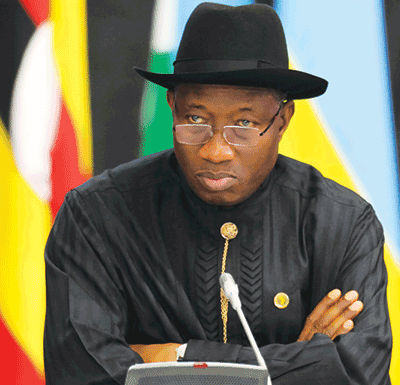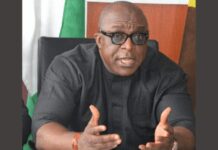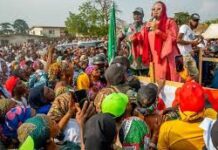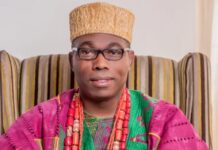Acting News Editor, ISHAYA IBRAHIM, examines the factors that contributed to President Goodluck Jonathan not polling more votes in the core Northern states in the March 28 presidential election.
Most of the damaging results for President Goodluck Jonathan, presidential candidate of the Peoples Democratic Party (PDP) in the March 28 election, came from the North. Though PDP controls more states in the region, the All Progressives Congress (APC) overran it.
PDP controls 12 of the region’s 19 states, while APC holds sway in just five. Yet, the PDP failed to score 25 per cent in 11 states in the area, even when it controls six out of these 11 states. The states are Bauchi, Jigawa, Katsina, Kaduna, Niger and Gombe. The party also lost all senatorial seats in these states.
Three factors – North angling for power shift, Boko Haram menace and unguarded utterances of Jonathan’s henchmen – played critical role in the poor showing of the party in the region, TheNiche gathered.
Niger Delta activist, Mujahid Dokubo-Asari, a staunch supporter of Jonathan, earned more enemies than friends for the president in the region. In an interview with the Vanguard newspaper of December 14, 2014, Dokubo-Asari described the North in despicable terms.
“He who pays the piper will dictate the tune. We own them (North). We are feeding them. They are parasites. A beggar has no choice. In all religions, in Islam, everywhere… if you are a beggar, you will respect the one who gives to you. They are beggars and parasites.”
TheNiche also learnt that the North’s posture that it wants to produce the president in 2015 favoured the APC, which fielded Muhammadu Buhari, a Northerner with huge following in the region.
Opposition against President Jonathan’s second term ambition was initially spear-headed by PDP governors, Sule Lamido of Jigawa State and Mu’azu Babangida Aliyu of Niger State.
In an interview in 2013, Lamido had made insightful comment on the support of Edwin Clark, former federal commissioner for information, for Jonathan’s re-election: “Well, if Clark says President Jonathan must get the PDP ticket, we can understand. He can say so. But as for second term in office, this is a function of election. When you say ‘he is our son, he must have it’, you must remember that what you are saying is a function of election. And it doesn’t mean that he (the president) is going to win the election. In any case, when you say categorically that the president must win the election, what are you talking about? Where is democracy?”
Lamido and Aliyu later headed Jonathan’s campaign in the region. But their Northern colleagues – Rabiu Kwankwaso (Kano), Abdulfatah Ahmed (Kwara) and Aliyu Wamakko (Sokoto) – defected to the APC and emboldened Buhari’s candidature.
Though Lamido and Aliyu later took up roles in Jonathan’s campaign, they delivered paltry votes to the president. In Jigawa, Jonathan only polled 13.3 per cent of the total votes cast. In Niger, he got 17.7 per cent. And in both states, the PDP lost all the senatorial seats to the APC.
Also, the inability of the federal government to tame the Boko Haram menace, which crippled economic and social life in the North East, was a major blow for the president’s campaign. The sentiment of the people was that the federal government had no resolve to quash the insurgents.
It is estimated that Boko Haram has killed more than 50,000 civilians between July 2009 and March 2015, displacing at least two million people. They alleged that corruption in the security services was the chief hamper to the efforts to counter the unrest.
The insurgents overran several villages, hoisted their flags and declared the areas a caliphate. As the people were groping in the pains, the abduction of more than 200 girls of the Government Secondary School, Chibok, in Borno State, occurred.
Not many were happy that it took President Jonathan 10 days to publicly respond to the abduction. The matter was made worse by his wife, Patience. She instituted a public hearing on the missing girls. And when Nana Shettima, wife of the Borno State Governor, Kashim Shettima, refused to appear, the president’s wife dismissed the abduction as a game.
“Borno women are playing game. Nigerian women should not go out for demonstration. Don’t use school children for demonstration again. Borno women are not ready for cooperation,” she said.













